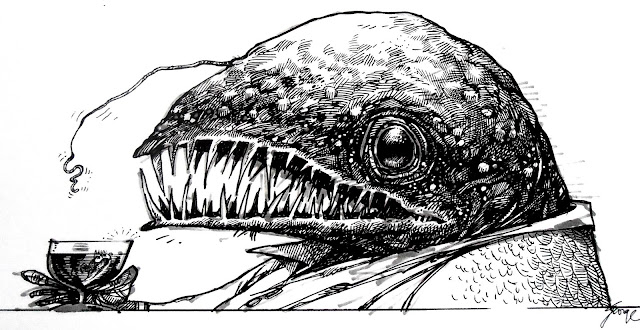After a horrid wet windy winter - and more to come - a burst of sunshine purges the cabin fever
by PHILIP WHITE
A lost farrier with horses
in his float just drew me outside for instructions. Dressing gown. Uggies.
Ouch. But watching him skillfully inch his rig back and forth in a limited
space to ease it back down the hill got some sun on the forehead after a
forgettable fortnight wrestling with an infectious demon within. The burst of
bright warmth and fresh air felt good. It's a splendid sunkissed morning.
The horses remained cool
in their carriage. There goes a good bloke.
Bring the lemony green tea
to the veranda. Sit. Following his direction to the west end of Eyer's Flat the
keen eye can spot a mob of 'roos basking in the dapple of a eucalypt coppice.
The mind almost convinces the eyes they see the ears flicking, but the distance
is too far.
Pan the eyelid cinema to
the north west, to the spread of a big industrial vineyard where a tractor hurls
fungicide at the wiles of a shifty breeze. That explains the distant whine I
first heard at dawn. Country life.
Turn further toward the
north east and zoom, and the forested horizon jumps with springtime birds which
are also far too distant to discern. I can hear white and black cockatoos out
there: the noisy nesting business active in the trees here in my yard extends
right through these bonnie ranges today, from the tiny pardalotes nesting in a
crack in the wall to the giant wedgies daring to risk the great windy sky
beyond the Onkaparinga gorge.
 Last warm morning we had I
was awoken by a great screaming din: it seemed all the middle-to-large birds on
the block were fighting right outside my window. A swarm of bees had decided to
move in to the shade of my veranda.
Apart from the hives across the dam, and a permanent swarm in the red gum outside, I've lived with bee hives
on-and-off through my life, but had never before realised how vulnerable bees are
when they move en masse: I drew the blinds to see a feeding frenzy: all the
bug-eaters from willy wagtails through welcome swallows to magpies were going
nuts, feeding on the wing and floor. Even the sulphur-crested cockies swept
through repeatedly, closer than they ever come. Doing gonzo aerobatics flat strap through a tiny space, spraying other birds aside. I couldn't work out whether they were
feeding too, or were just being crazy larrikins in the melee.
Last warm morning we had I
was awoken by a great screaming din: it seemed all the middle-to-large birds on
the block were fighting right outside my window. A swarm of bees had decided to
move in to the shade of my veranda.
Apart from the hives across the dam, and a permanent swarm in the red gum outside, I've lived with bee hives
on-and-off through my life, but had never before realised how vulnerable bees are
when they move en masse: I drew the blinds to see a feeding frenzy: all the
bug-eaters from willy wagtails through welcome swallows to magpies were going
nuts, feeding on the wing and floor. Even the sulphur-crested cockies swept
through repeatedly, closer than they ever come. Doing gonzo aerobatics flat strap through a tiny space, spraying other birds aside. I couldn't work out whether they were
feeding too, or were just being crazy larrikins in the melee.
Apiarist at work with hives on Yangarra ... photos by Philip White
It's perfect to have bees;
better when the good birds move them away from the bedroom window. Vines need
pollination, like nearly everything else. But it's interesting that the same
birds tend to leave the bugs in my roses to sort their own little wars: an
initial plague of aphids quickly brought on a mighty swarm of ladybird beetles
and tiny wasps which cleaned up any leftovers.
Focusing up close brings
embarrassment at the unmown grass, which turned from a daggy lawn to a complex meadow
in the last fortnight. It seemed to grow ten centimetres in that Supermoon
alone. It's been too wet and lush to admit my little mower. And since the vines
have sprung into vigorous growth, the sheep have been removed, so I can no
longer borrow a small flock to turn my backyard sward to fertiliser.
Which only reminds me of viticulturers
everywhere. In too many vignobles, the ground is too muddy for tractors, right
at a time when shoot and leaf growth is unseemly rapid and most would normally
be spraying fungicide before the rains return.
Not to mention dealing
with the new meadow weeds, by mower or spray.
I made a bad mistake
yesterday. On his way home, Michael Lane, the viticulturer in charge of the
vineyards that surround my cottage, was dropping me at the dreaded pharmacy.
"That was a lovely steady
rain last night," I said, commenting on the fact that the recent weather had
been far too wild and destructive and some calm was a relief. There was a
sullen silence, during which I realised that in any normal season, such observation
would be welcome. But right now, a man with big vineyards to manage needs no
more rain, however friendly and calm.
The ground is full.
The Onkaparinga at Clarendon, mid-September ... photo Mick Wordley ... below is the same gorge, a few kays downstream in March 2014 ... this winter has seen this stretch of the Onkaparinga look like a giant milkshake ... you wouldn't be sitting back to a feast on this spot!... photo Off Piste tours
Michael made a wry philosophical
murmer about being better off than those with vineyards still mucky or indeed
flooded on river and creek flats, where they'd planted for ease and efficiency
of farming. Some of the hills in his care are gentle, rolling and easy. It's the
precipitous Clarendon vineyard that worries him.
I don't begin to
understand the stoiicism even the brightest, most sensitive farmer shows
inclement seasons. It's discomforting to watch them see-saw through their list
of measured logical and scientific reactions to finally accept the unacceptable
nature of nature. Flexing their knowledge and capacity right through to
harvest. I couldn't handle it.
The weather scientists
warn that we can expect more rain into November, when the vineyards are usually
quite dry and safe for machinery. In anybody's language, 2017 is already a very
tricky year.
Add the awkward feelings
this bestows on anybody with a viticulture bent to the mess the rest of the
world's in and even the jolly brilliance of a day like today is spoiled by the
expectation of lesser joys to come.
But I never finished my
panorama. You got the gist of the distance, and the close-up? The best bit was
the mid-field. As the turbo whine of this morning's distant tractor phased in
and out on the breeze, I heard gentle voices. No, not dreaming. Once the
farrier was on his way I realised that there were people in the vineyard across
my fence. They were spread through three or four rows, working up the slope in
a studious group, plucking excess shoots from below the original flush of leaf.
This will limit unwanted
growth, of which there's probably more to come. It's the first step in
adjusting the size of the 2017 crop, and on a wind-swept shoulder like this it
opens the vine canopies so no drying breeze is wasted as it gusts on through.
A good clean breeze is a
fungicide, too. If you let it in.



















1 comment:
Truer words were never uttered! Let breezes be unrestricted and free, especially those that blow through lives and minds and clear away the dross!
Made me feel that I too was on your morning verandah, sinking deep into that blissful reverie of inaction - or rather, where the only action need is to focus on the locus inside, recording the gyrating, emotion-scored life of our flying comrades. You know that their brains are about 5 times as dense as ours? So they only need tiny organs up there to do amazing things like swoop through the air and turn at impossible, reckless angles, squawk as 100db and undertake jaw-dropping feats of memory
Post a Comment